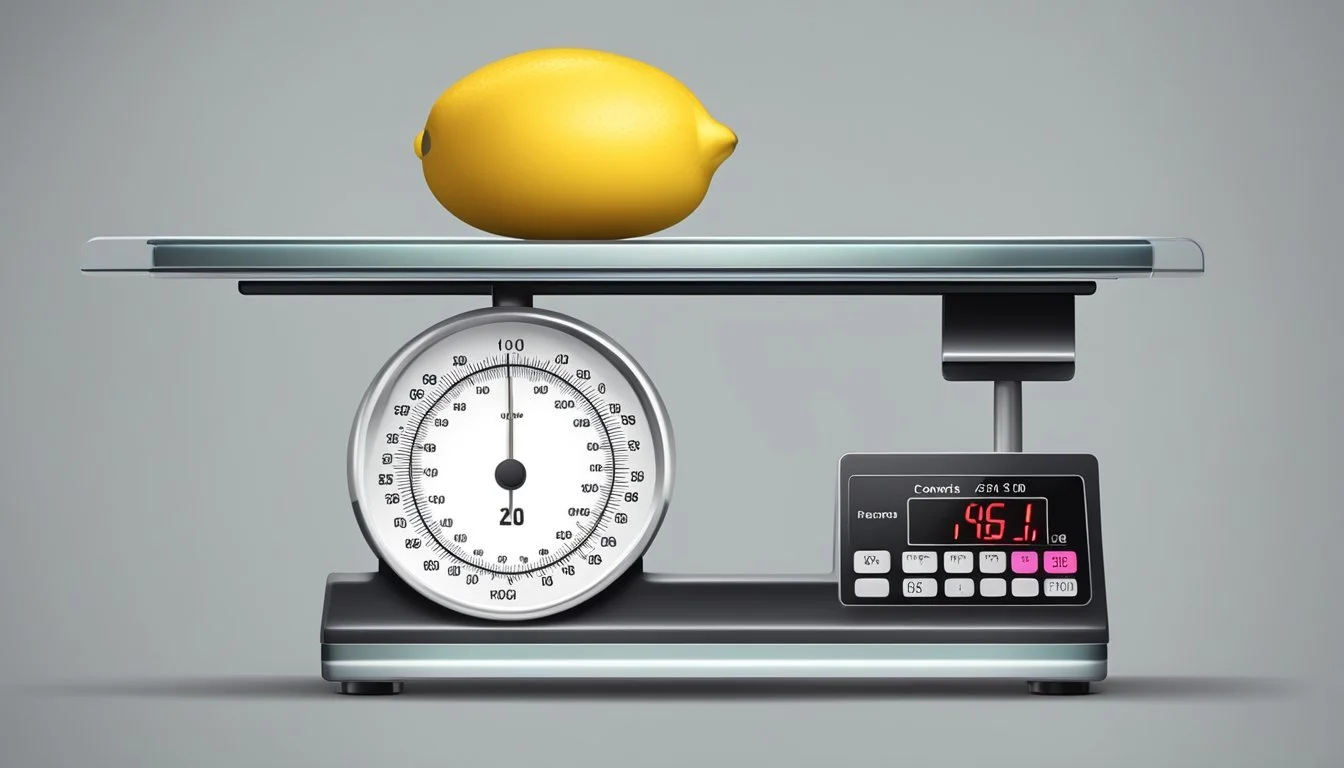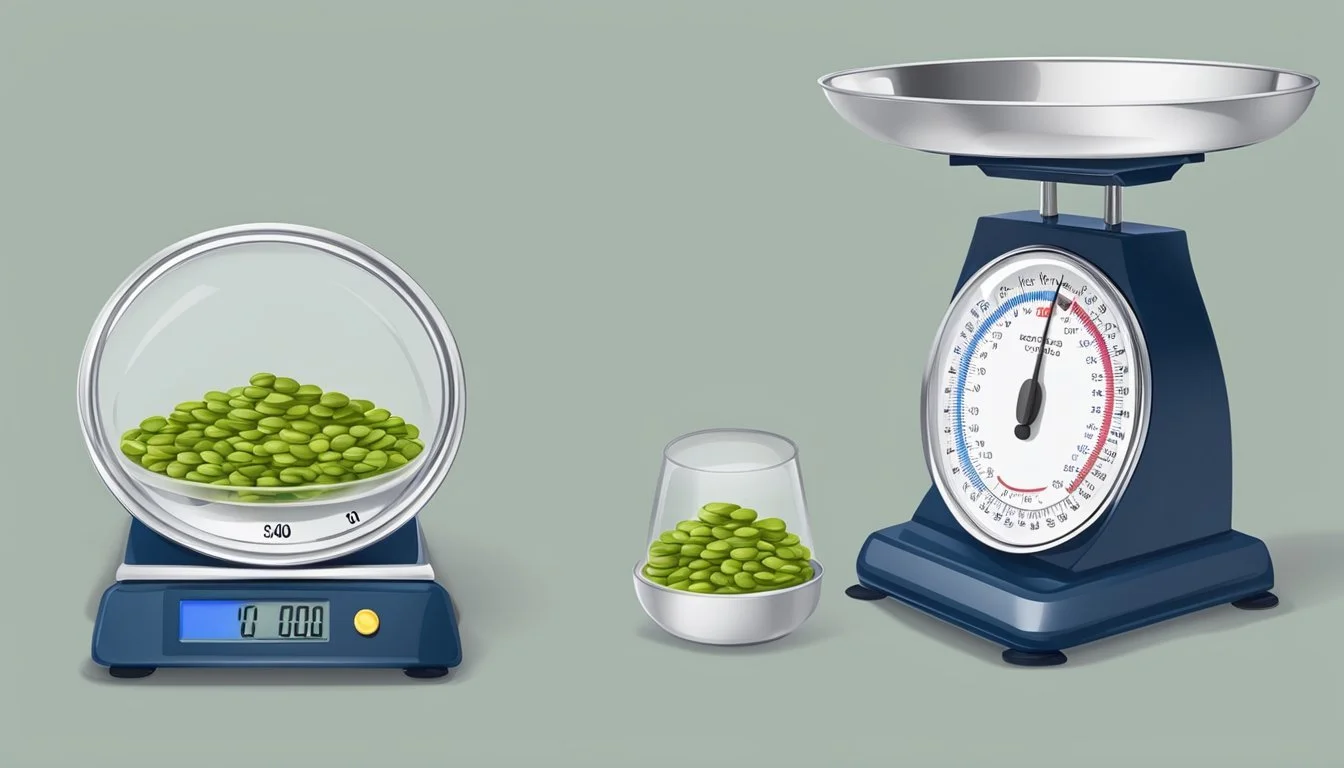How Many Kilograms in a Pound
Converting Units with Ease
In the realm of weight measurement, the conversion between pounds and kilograms is a common necessity across various industries and applications. A pound is a unit of weight commonly used in the United States and the United Kingdom. The pound is officially known as the international avoirdupois pound, which is legally defined as exactly 0.45359237 kilograms.
Kilograms represent the base unit of mass in the International System of Units (SI) and are widely used around the world. One kilogram is approximately the mass of a one-liter bottle of water, and it is equivalent to the mass of the International Prototype of the Kilogram, a platinum-iridium alloy stored in France. Conversions between pounds and kilograms enable people to understand weight in a unit that is most familiar to them, depending on their country's measurement system.
Understanding Weight Units
When discussing weight units, it is essential to understand that weight is commonly used in everyday language to mean mass. Mass is a measure of the amount of matter in an object, while weight is the force exerted by gravity on that mass. The two most recognized units for measuring mass are kilograms and pounds.
Definition of Kilogram
The kilogram (kg) is the base unit of mass in the International System of Units (SI). It is defined by the fixed numerical value of the Planck constant, h, which is ( 6.62607015 \times 10^{-34} ) joule seconds (J·s). This definition is based on a platinum-iridium alloy artifact stored in an international vault. One kilogram is approximately the mass of one liter of water.
SI Base Unit: Kilogram
Unit Symbol: kg
Definition of Pound
The pound, commonly abbreviated as lb (or "lbs" for plural), is a unit of mass used in the avoirdupois system. It is legally defined as exactly 0.45359237 kilograms. The avoirdupois pound is used in the United States and the British commonwealths. Unlike the kilogram, the pound is not an SI base unit.
Unit: Avoirdupois Pound
Unit Symbol: lb
SI Equivalent: Exactly ( 0.45359237 ) kg
Mass is a key concept shared by both kilograms and pounds, and knowing the conversion factor is crucial for accurate calculations between the two.
Conversion Fundamentals
In the realm of weight measurement, precision is essential. This section will detail the fundamentals of converting weight from pounds to kilograms, addressing both the metric system and the International System of Units (SI).
The Kilogram as a Base Unit
The kilogram is the fundamental SI unit for mass. One kilogram is defined as being equal to the mass of the International Prototype of the Kilogram (IPK), a platinum-iridium alloy stored by the International Bureau of Weights and Measures. In its association with base SI units, the kilogram provides a standard from which other mass measurements, like grams, can derive. Specifically, 1 kilogram equals 1000 grams.
Converting Pounds to Kilograms
To convert from pounds to kilograms, one must use a predetermined conversion factor. 1 pound is equivalent to 0.45359237 kilograms. The formula to make this conversion is relatively straightforward:
[ \textit{Kilograms} = \textit{Pounds} \times 0.45359237 ]
Alternatively, to convert from kilograms to pounds, the conversion formula is as follows:
[ \textit{Pounds} = \textit{Kilograms} \times 2.2046226218 ]
A table to facilitate common conversions might include:
Pounds (lbs) Kilograms (kg) 1 0.45359 10 4.53592 100 45.3592 1000 453.592
Metric System Overview
The metric system, an alternative to the British imperial system, is utilized worldwide. It is a base-10 system, meaning that it scales in units of 10. This system operates seamlessly within the broader International System of Units, often known as SI from its French name, "Système international (d'unités)". The metric system's integration with SI ensures its uniform application across scientific and industrial fields globally, providing consistency in measurement conversions, especially in the context of kilograms and grams.
Practical Conversion Examples
In this section, they will explore how to accurately convert common weights from pounds to kilograms.
Converting Common Weights
When converting weights between pounds and kilograms, it's essential to remember that 1 kilogram is approximately 2.20462 pounds. This ratio is a key in making quick and accurate conversions. To convert pounds to kilograms, one can divide the number of pounds by 2.20462. Conversely, to convert kilograms to pounds, they multiply the number of kilograms by 2.20462.
For one's convenience, below is a conversion table for some common weights:
Pounds (lbs) Kilograms (kg) 1 lb 0.45359 kg 2 lb 0.90718 kg 3 lb 1.36078 kg 5 lb 2.26796 kg 7 lb 3.17514 kg 10 lb 4.53592 kg 20 lb 9.07184 kg 50 lb 22.6796 kg 100 lb 45.3592 kg 200 lb 90.7185 kg
For a precise conversion that takes into account the exact standard, utilizing the exact conversion factor of 0.45359237 kilograms per pound is advised. As such:
1 kg is equivalent to roughly 2.20462 lbs
Similarly, 2 kg equals about 4.40924 lbs
3 kg converts to approximately 6.61386 lbs
A weight of 5 kg translates to about 11.0231 lbs
And 7 kg is equal to roughly 15.4324 lbs
These values are approximations and should be enough for general use. However, for high precision needs such as laboratory measurements, they should always use the exact conversion factor and a calculator for the best accuracy.
Advanced Conversion Concepts
This section delves into the precise methods and historical advancements that have honed the conversion of pounds to kilograms, enabling accurate calculations and a deepened understanding of measurement.
Precise Conversion Techniques
When converting pounds (lb) to kilograms (kg), precision is crucial. The exact conversion factor is 1 pound = 0.45359237 kilograms. For calculations requiring high precision, maintaining several decimal places is essential. Conversion tables may facilitate quick reference, but for computational accuracy, especially in scientific contexts, significant figures must be accounted for. An example of a precise conversion, showing all significant figures, is as follows:
5 pounds = 2.26796 kilograms (using the exact conversion factor)
Calculations can also be displayed in exponential format to clearly communicate precision in scientific terms. For instance:
5 lb = 2.26796 x 10² grams
These exact methods might include using software or conversion tools that allow users to specifically input the number of significant figures they desire or requiring the format accuracy to reflect the level of precision needed in fields like science or engineering.
Historical Context and Development
The kilogram is the base unit of mass in the International System of Units (SI) and is defined by the fixed numerical value of the Planck constant, h, which is 6.62607015 × 10^-34 in the units of kg·m²·s^-1. Understanding this constant requires a grasp of other fundamental units—the meter (m) and the second (s)—which are defined in terms of c, the speed of light, and cesium frequency, ΔνCs.
Historically, the kilogram was once represented by a physical object, the International Prototype of the Kilogram (IPK). However, in 2019, this definition was replaced by the current, fundamental physics-based definition. This change allowed for a more consistent and future-proof reference for the kilogram, one that could be replicated precisely anywhere in the world. The ability to "swap units"—converting from pounds to kilograms or vice versa—has been refined over time to reflect these advancements in measurement accuracy and to embrace a universal standard that aligns with the SI.
Using Conversion in Real-life Scenarios
When dealing with mass and weight internationally or across different industries, accurate conversion from pounds to kilograms is critical. It ensures clear communication and precise transactions.
Bulk Conversion in Commerce
Bulk conversion between pounds and kilograms is a daily operation in commerce, particularly in the trade of goods like produce and raw materials. For example, in the United States, produce is often purchased in pounds, whereas the same goods might be sold in kilograms in other markets. Here's how some common weights convert:
8 kg converts to 17.64 pounds
16 kg is equivalent to 35.27 pounds
24 kg becomes 52.91 pounds
Businesses must be proficient in these conversions to facilitate smooth international trade and maintain inventory accuracy.
Scientific and Technical Applications
In scientific and technical fields, precision in converting units is non-negotiable. When scientists measure substances like water or chemical compounds, they use weights and volumes like liters and kilograms. A pound is equivalent to 0.45359237 kilograms. For precise applications, these conversions become particularly crucial:
0 kg implies a complete absence of mass
9 kg of a substance is 19.84 pounds
14 kg equates to 30.86 pounds
18 kg of material weighs 39.68 pounds
In technical documentation and design, exact conversions are essential for clear specifications and to avoid costly mistakes.
Conversion Tools and Resources
When looking to convert pounds to kilograms, individuals have a variety of online tools and physical resources at their disposal that provide quick and precise measurements.
Online Conversion Calculators
Online conversion calculators are readily accessible and offer a user-friendly interface for instant conversions. To use these calculators, one simply inputs the number of pounds (lb) they wish to convert, and the tool automatically provides the equivalent in kilograms (kg). For instance, a typical calculator will multiply the value in pounds by a conversion factor, which is 0.45359237 to yield the weight in kilograms. This convenience ensures that users can easily convert pounds to kilograms without manual calculations.
Conversion Charts and Tables
Conversion charts and tables serve as a practical reference for converting pounds to kilograms. They often list common values in pounds with their corresponding weight in kilograms, eliminating the need for computation. For instance, a conversion table may show:
Pounds (lb) Kilograms (kg) 1 0.454 2 0.907 10 4.536 100 45.359
These resources are particularly useful in environments where digital tools are not accessible, such as in classrooms or workshops, enabling individuals to accurately convert pounds to kilograms by simple reference.




